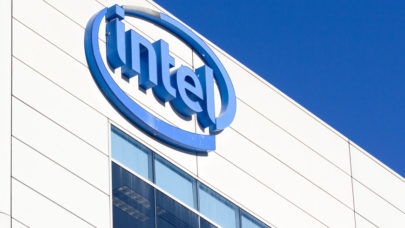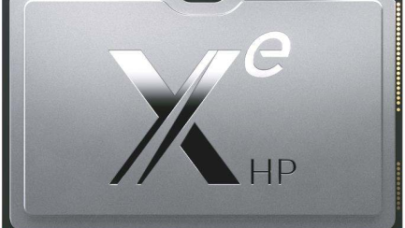
Intel Sorts out Supercomputing Future Amid Cancellation of GPUs
March 5, 2023
Intel CEO Pat Gelsinger is taking a no-holds-barred approach to cutting costs as he whips the company back into financial shape. Intel has already exited seven businesses, and recently made wholesale graphics processors changes by axing products and changing its enterprise GPU roadmap. Intel has scrapped a supercomputer GPU codenamed Rialto Bridge, which was advertised... Read more…

Intel Reiterates Plans to Merge CPU, GPU High-performance Chip Roadmaps
May 31, 2022
Intel reiterated it is well on its way to merging its roadmap of high-performance CPUs and GPUs as it shifts over to newer manufacturing processes and packaging technologies in the coming years. The company is merging the CPU and GPU lineups into a chip (codenamed Falcon Shores) which Intel has dubbed an XPU. Falcon Shores... Read more…

Preparing for the Arrival of Intel’s Discrete High-Performance GPUs
March 23, 2021
Intel's GPUs will come. There may be discussions about the role Intel's GPUs will play in the Aurora supercomputer, the second exascale system of the U.S. Exascale Computing Project, but Intel certainly has committed to developing discrete GPUs for high-performance computing. Read more…

- Click Here for More Headlines

Whitepaper
Transforming Industrial and Automotive Manufacturing
In this era, expansion in digital infrastructure capacity is inevitable. Parallel to this, climate change consciousness is also rising, making sustainability a mandatory part of the organization’s functioning. As computing workloads such as AI and HPC continue to surge, so does the energy consumption, posing environmental woes. IT departments within organizations have a crucial role in combating this challenge. They can significantly drive sustainable practices by influencing newer technologies and process adoption that aid in mitigating the effects of climate change.
While buying more sustainable IT solutions is an option, partnering with IT solutions providers, such and Lenovo and Intel, who are committed to sustainability and aiding customers in executing sustainability strategies is likely to be more impactful.
Learn how Lenovo and Intel, through their partnership, are strongly positioned to address this need with their innovations driving energy efficiency and environmental stewardship.
Download Now
Sponsored by Lenovo
Whitepaper
How Direct Liquid Cooling Improves Data Center Energy Efficiency
Data centers are experiencing increasing power consumption, space constraints and cooling demands due to the unprecedented computing power required by today’s chips and servers. HVAC cooling systems consume approximately 40% of a data center’s electricity. These systems traditionally use air conditioning, air handling and fans to cool the data center facility and IT equipment, ultimately resulting in high energy consumption and high carbon emissions. Data centers are moving to direct liquid cooled (DLC) systems to improve cooling efficiency thus lowering their PUE, operating expenses (OPEX) and carbon footprint.
This paper describes how CoolIT Systems (CoolIT) meets the need for improved energy efficiency in data centers and includes case studies that show how CoolIT’s DLC solutions improve energy efficiency, increase rack density, lower OPEX, and enable sustainability programs. CoolIT is the global market and innovation leader in scalable DLC solutions for the world’s most demanding computing environments. CoolIT’s end-to-end solutions meet the rising demand in cooling and the rising demand for energy efficiency.
Download Now
Sponsored by CoolIT
Advanced Scale Career Development & Workforce Enhancement Center
Featured Advanced Scale Jobs:
HPCwire Resource Library
HPCwire Product Showcase
© 2024 HPCwire. All Rights Reserved. A Tabor Communications Publication
HPCwire is a registered trademark of Tabor Communications, Inc. Use of this site is governed by our Terms of Use and Privacy Policy.
Reproduction in whole or in part in any form or medium without express written permission of Tabor Communications, Inc. is prohibited.
























